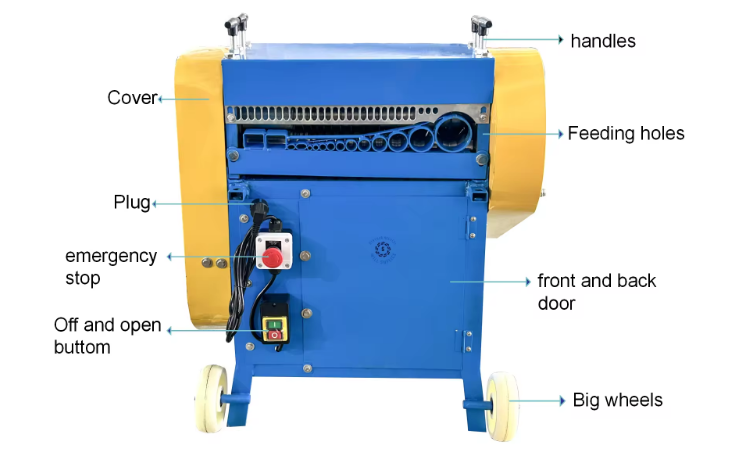

nov. . 10, 2024 04:51 Back to list
The Evolution and Impact of Industrial Chippers in Modern Manufacturing
In the age of rapid industrialization and technological advancement, the demand for efficient processing methods has never been greater. One such advancement is the industrial chipper, a vital machine designed to break down large volumes of materials into manageable chips or shavings. These machines have not only transformed industries by enhancing productivity but have also led to significant environmental benefits through effective waste management.
Understanding the Industrial Chip
Industrial chippers are heavy-duty machines primarily used to process wood, plastics, and various organic materials. Their principal function is to reduce material size, which can facilitate easier transport and further processing. The design of these chippers varies according to the material being processed, with features tailored to ensure efficiency and safety. For instance, wood chippers often come equipped with sharp blades that can handle branches and trunks, while plastic chippers are designed with different shredding mechanisms to tackle tough polymers.
The technology behind industrial chippers has evolved considerably over the years. Early models were mechanical and relied on human operation to feed materials into the machine. However, modern chippers are often equipped with automated systems that allow for continuous operation with minimal human intervention. This shift not only enhances efficiency but also reduces the risk of injury associated with manual operations.
Applications Across Industries
Industrial chippers find applications in a multitude of sectors. In the forestry industry, they are indispensable for converting logging waste into wood chips that can be used for bioenergy production or as raw material for paper products. The agriculture sector utilizes chippers to shred crop residues, effectively returning nutrients to the soil while reducing waste.
Moreover, the recycling industry has significantly benefited from industrial chippers. Plastic and metal chippers play a crucial role in breaking down discarded materials into smaller fragments that can be easily processed and repurposed. By facilitating the recycling process, industrial chippers contribute to a circular economy, wherein materials are reused, thereby minimizing environmental impact.

Environmental Benefits
One of the most compelling advantages of industrial chippers is their positive impact on the environment. By reducing large volumes of waste into chips, companies are able to divert significant amounts of material from landfills. For instance, wood chips can be utilized as mulch in landscaping, enhancing soil health and moisture retention. Similarly, shredded plastics can be transformed into pellets that serve as inputs for manufacturing new products, effectively reducing the reliance on virgin materials.
Furthermore, the emergence of biomass energy from wood chips represents a sustainable alternative to fossil fuels. As energy demands grow, biomass energy offers a renewable solution, harnessing the power of organic waste and mitigating carbon emissions associated with conventional energy sources.
Challenges and Considerations
Despite their benefits, the implementation of industrial chippers is not without challenges. Safety remains a primary concern, as these machines can be hazardous if not operated correctly. Companies must invest in training employees to operate chippers safely and ensure regular maintenance to prevent accidents. Additionally, the initial cost of acquiring high-quality industrial chippers can be significant, leading some businesses to delay investment.
Moreover, there is an ongoing debate regarding the sustainability of using biomass as an energy source. While wood chips can offer a renewable alternative, concerns about deforestation and biodiversity loss must be addressed. It is essential for industries to source materials responsibly and prioritize sustainability in their operations.
Conclusion
Industrial chippers have revolutionized how businesses process materials across various sectors. By enhancing efficiency, promoting recycling, and offering sustainable energy alternatives, these machines embody the potential of modern manufacturing technologies. As industries continue to evolve, it is crucial to embrace innovative solutions like industrial chippers while also being mindful of their environmental impact. Ultimately, the future of industrial processing will rely on balancing productivity with sustainability, and industrial chippers are poised to play a pivotal role in this transition.
Latest news
Troubleshooting Common Eddy Separator Problems
NewsJul.04,2025
The Role of Metal Recycling Plants in Circular Economy
NewsJul.04,2025
The Impact of Recycling Line Pickers on Waste Management Costs
NewsJul.04,2025
Safety Features Every Metal Shredder Should Have
NewsJul.04,2025
How Industrial Shredders Improve Waste Management Systems
NewsJul.04,2025
How Cable Granulators Contribute to Sustainable Recycling
NewsJul.04,2025